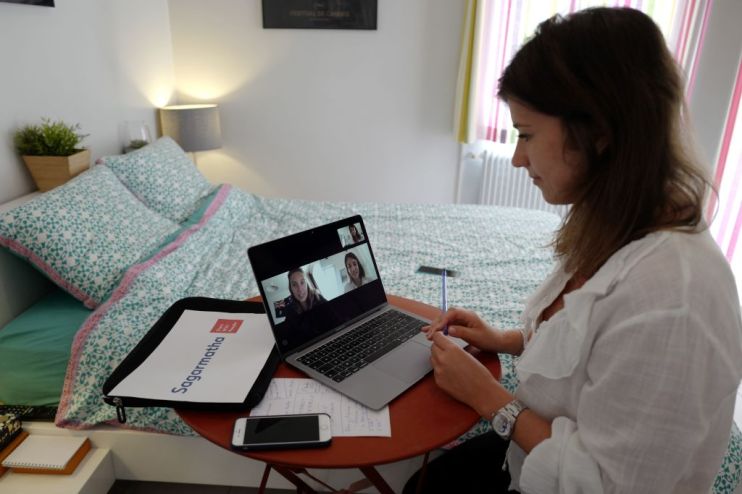Remote living has eroded our empathy and executives must find a way to understand their staff

It is difficult to count what we have lost during the pandemic. We’ve lost jobs, loved ones, incomes and our social lives. Living and working remotely has also meant we are losing our empathy for colleagues. This is especially true of business leaders and executives who need to be able to understand the problems their employees are grappling with as we leave lockdown.
This loss in our ability to empathise with one another is not new. In 2018, 51 per cent of Brits said they thought it was declining, compared with just 12 per cent who thought it was increasing. The pandemic has supercharged this. We are looking at one another through screens and heavily ensconced in our own worlds, so it is difficult to expand our awareness to people with different experiences.
There is a crucial difference between empathy and sympathy. To sympathise with someone means we feel sad for their misfortune. Empathy, on the other hand, means understanding and sharing the feelings of another. Throughout the pandemic, most of us have been able to sympathise with those who have lost jobs or family members. We have been able to feel compassion for those living in cramped quarters. But by being physically separated from them, we have not been able to truly understand and empathise with those people.
We have become distanced from our employees and, more widely, our customers – the
majority of who increasingly want to deal with companies and brands that demonstrate their care for people and the planet. As offices start to reopen, it is vital we can act with empathy towards our staff and those we serve. This is crucially important for those at the top of businesses, who have kept their jobs and had a different experience of the pandemic.
In order to understand the customers and people they are serving, business leaders need to be able to understand their staff. There is a huge array of experience just waiting to be tapped into to create a more empathetic work environment. Some communities are more tight-knit than others and have had better support systems throughout lockdown. Younger workers may have been more isolated and need more help and encouragement returning to the office.
Often senior executives have more in common with other senior executives than their customers and other target audiences, such as staff. Therefore, learning how to rebuild lost empathy will mean spending more time with the people you’ve never met. To lead with listening and not opining, to immerse yourself first-hand in the real-world experience of your customers’ lives rather than just reading reports about them.
On a practical level, this might look like asking for written feedback from staff on their experience of lockdown. It could also mean trying to spend time in the office coffee shop. Appearing physically accessible to employees will encourage conversations that can never happen over email.
There is also a place for data, but not as we know it. In today’s big data era, digital interaction between companies and customers means businesses have access to more data than ever before. Sourcing the most valuable data isn’t the only challenge. When there is an over-reliance on endless sheets of numbers it can be difficult to define behaviours. There is a risk of losing a richness of understanding. One-on-one interviews with staff or customers can be more useful than “big data”. It can be costly and time-consuming and, because of this, it often gets left behind.
However, with so much of the same data out there, it is in the small, slow data that the most striking insights can be found – nuanced findings that can make all the difference between people thinking you and your business are empathetic, or not.